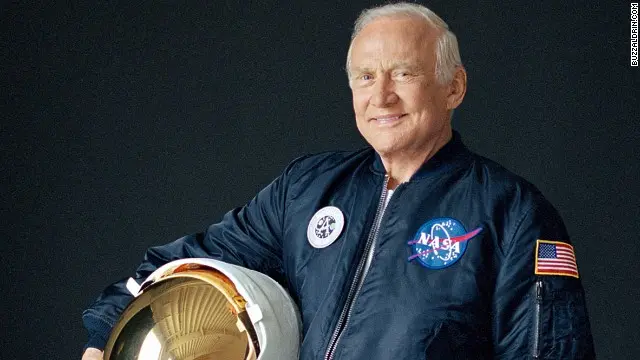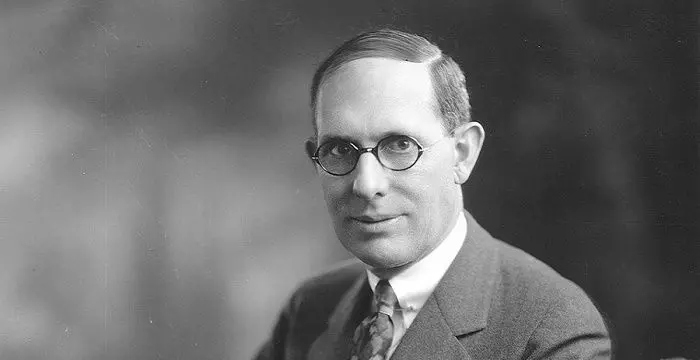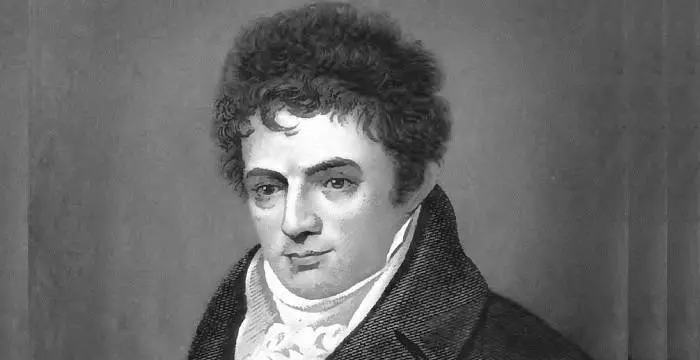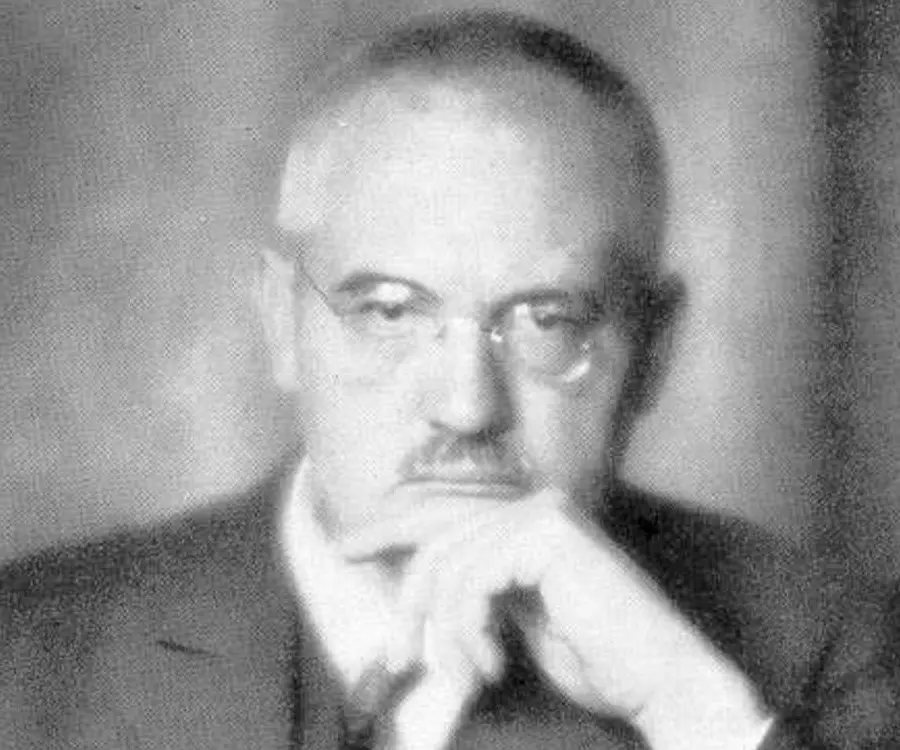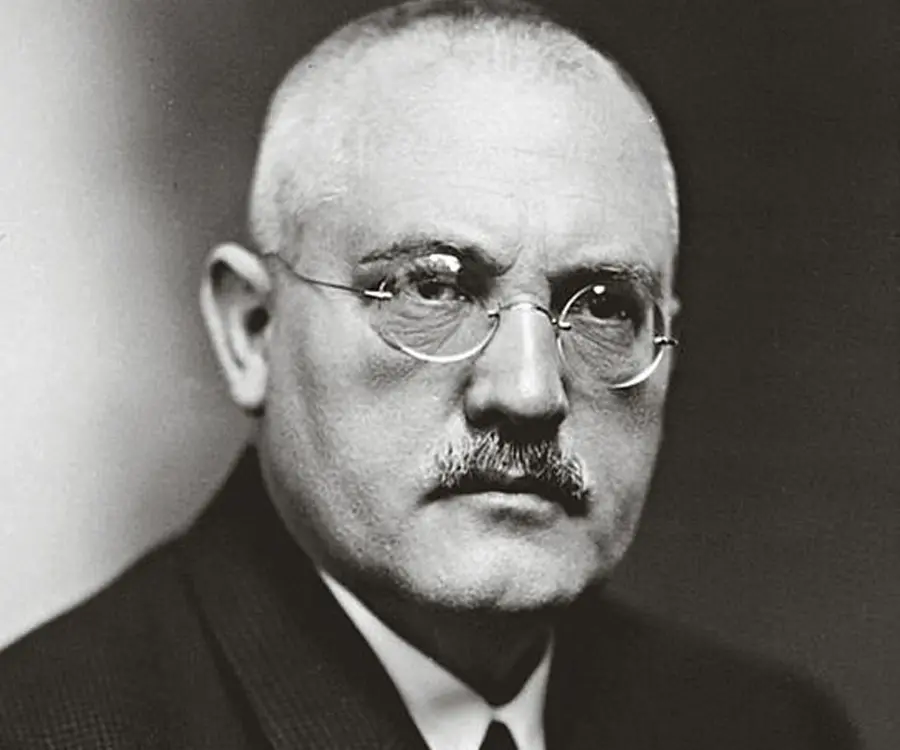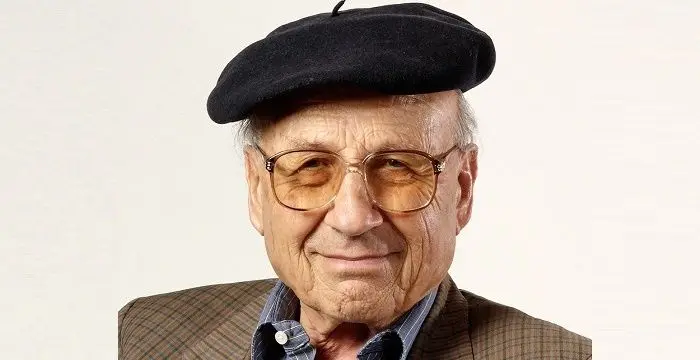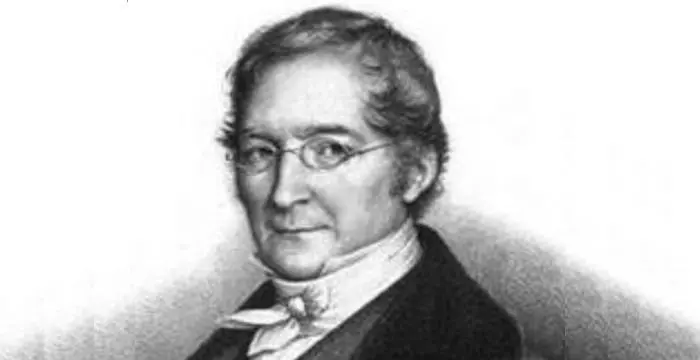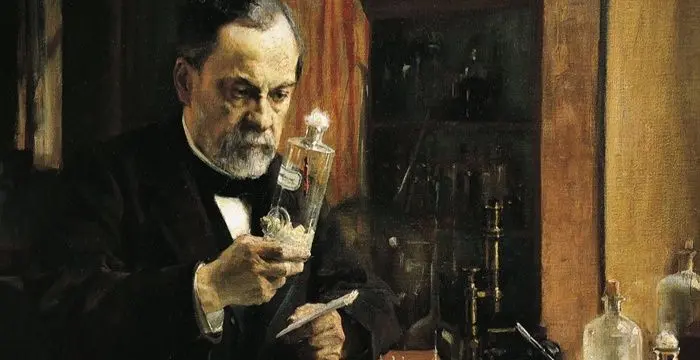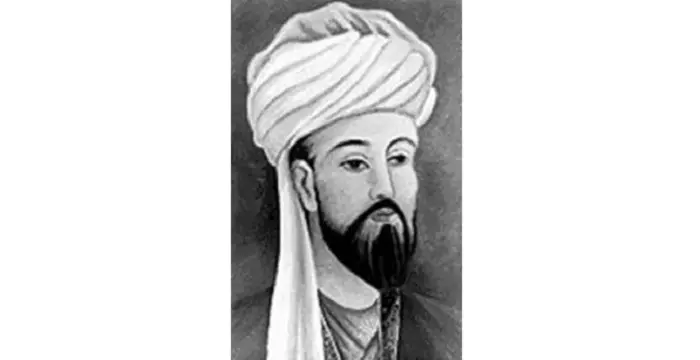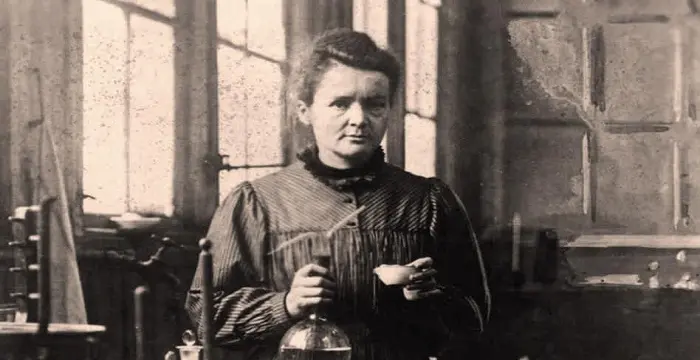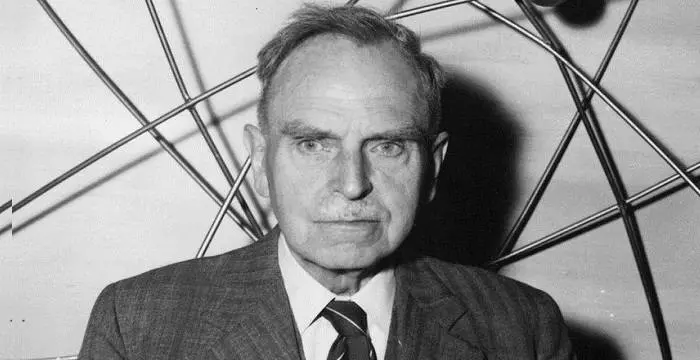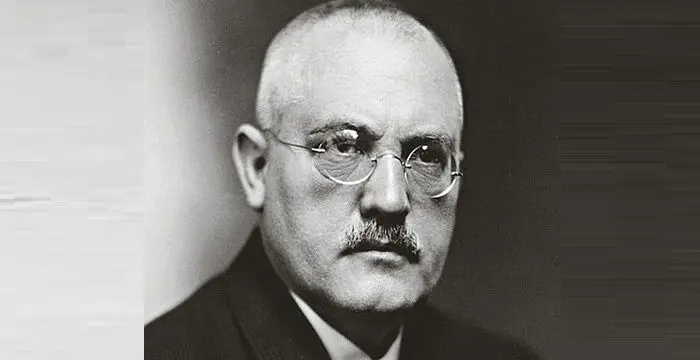
Carl Bosch - Chemists, Family and Facts
Carl Bosch's Personal Details
Carl Bosch was a well-known German chemist and industrialist
| Information | Detail |
|---|---|
| Birthday | August 27, 1874 |
| Died on | April 26, 1940 |
| Nationality | German |
| Famous | Scientists, Chemists, Chemists, Engineers |
| Universities |
|
| Birth Place | Cologne, Germany |
| Gender | Male |
| Sun Sign | Virgo |
| Born in | Cologne, Germany |
| Famous as | Chemist & Engineer |
| Died at Age | 65 |
// Famous Engineers
Buzz Aldrin
Buzz Aldrin was a US Astronaut and was the second man to set foot on the moon. This biography provides detailed information about his profile, childhood, life, achievements, works & timeline.
Charles F. Kettering
Charles F. Kettering was an American inventor and electrical engineer who held more than 150 patents. This biography provides detailed information about his childhood, life, works, achievements and timeline.
Robert Fulton
Robert Fulton was an American Engineer who developed the first commercially successful steamboat. This biography of Robert Fulton provides detail information about his profile, childhood, life & timeline.
Carl Bosch's photo
Who is Carl Bosch?
Carl Bosch was a well-known German chemist and industrialist. He is famous for the development of the Haber-Bosch process for high-pressure synthesis of ammonia for which he won the Nobel Prize in Chemistry. While working as a chemist for a large German company, he transformed a laboratory demonstration project into a practical and extensive manoeuvre. When Fritz Haber approached BASF, the company Bosch used to work for, he was assigned to solve the task of bringing Haber's proposal of commercial ammonia production into reality. Bosch succeeded in supplying raw materials and provisioning suitable catalysts easily. His most tricky challenge was designing the equipment that could endure the tremendous high pressures necessary for ammonia synthesis and sustain the acidic effects of hydrogen gas. He did this by substituting Haber's carbon steel reactor with alloyed steel. It made possible one of the twentieth century's most important industrial processes—Fritz Haber's method of ammonia synthesis. His other works included manufacturing synthetic fuels such as methanol and gasoline from coal and oil. Carl Bosch was also one of the founders of IG Farben, one of the world’s largest chemical companies. He, along with Fritz Haber were voted ‘The Most Popular Chemical Engineers Ever’ by readers of the TCE Magazine. Bosch had immense in astronomy as well and had a well-built private observatory.
// Famous Chemists
Walter Kohn
Nobel Laureate Walter Kohn was an Austrian-born American theoretical chemist and physicist. Check out this biography to know about his childhood, life, achievements, works & timeline.
Amedeo Avogadro
Amedeo Avogadro was an Italian scientist who formulated what is now known as Avogadro's law. This biography of Amedeo Avogadro provides detailed information about his childhood, life, achievements, works & timeline.
Louis Pasteur
Louis Pasteur was a French chemist and microbiologist who developed the first vaccines for rabies and anthrax. This biography of Louis Pasteur provides detailed information about his childhood, life, achievements, works & timeline.
Childhood & Early Life
Carl Bosch was born on 27 August 1874 in Cologne, Germany. His father was a gas and plumbing supplier.
His uncle Robert Bosch was a famous engineer and inventor who invented the first commercially usable high-voltage spark plug.
After finishing high school, Bosch worked as a metal worker in a machine shop for a brief period.
From 1894 to 1896 he studied metallurgy and mechanical engineering at the Technische Hochschule (Technical University of Berlin) in Charlottenburg.
In 1896, he started studying chemistry at Leipzig University and graduated under Professor Wislicenus with a paper on organic chemistry in 1898.
Career
In April 1899 he joined as an entry level chemist at BASF (Badische Anilin- und Sodafabrik), Ludwigshafen, Rhine, the contemporary Germany's largest chemical and dye firm.
During his employment at the firm, he participated energetically in the development of synthetic indigo industry under the supervision of Dr. Rudolf Knietsch.
With metal cyanides and nitrides, he tried to solve the problem of the fixing of nitrogen and in 1907 started a pilot plant for the production of barium cyanide.
In 1908, Carl Bosch took up the large-scale project of developing the synthesis of ammonia on an industrial scale. By 1913, the project was successful and the first Haber-Bosch plant Stickstoffwerke (Nitrogen works) was opened in Oppau.
In 1917, another plant (Leunawerke) was set-up near Merseburg where he included the synthesis of methanol and the hydrogenation of oil to the production programme.
In 1919 Bosch was appointed Managing Director of the Badische Anilin- und Sodafabrik.
In 1925 he was made the first head of the I.G. Farbenindustrie Aktiengesellschaft, which was created by the merger of the German coal-tar dye works.
In 1935 he was chosen as the Chairman of the Board of Directors of the I.G. Farbenindustrie A.G.
In 1937, he became the President of the Kaiser Wilhelm Society.
Major Works
Carl Bosch’s major work was his adaption of the laboratory process for synthesizing ammonia for commercial production. He replaced osmium and uranium (Haber’s catalysts) with pure iron and constructed safe high-pressurized blast furnaces to create the synthesis. He devised the process in which hydrogen is manufactured on industrial scale by passing steam and water over a catalyst at high temperatures. The Haber-Bosch process became the most regularly used commercial process for nitrogen fixation and has increased agricultural production by supplying fertilizers all over the world. It has also played a role in the Green Revolution.
Awards & Achievements
He received honorary doctorate from various institutes like Technische Hochschule in Karlsruhe (1918), the Landwirtschaftliche Hochschule (Agriculture College), Berlin (1921), the Technische Hochschule in Munich (1922), Halle University (1927), the Technische Hochschule in Darmstadt (1928).
He was conferred the distinction of Honorary Senator by the Universities of Heidelberg (1922) and Leipzig (1939), and of Honorary Citizen of Frankfurt (1939).
Bosch was awarded the Liebig Memorial Medal of the Association of German Chemists, the Bunsen Medal of the German Bunsen Society, the Siemens Ring, and the Golden Grashof Memorial Medal of the VDI.
He also received the Exner medal from the Austrian Trade Association and the Carl Lueg Memorial Medal.
In 1931 he received the Nobel Prize for Chemistry, the highest international honour, jointly with Friedrich Bergius, for their invention and development of chemical high pressure methods.
Personal Life & Legacy
In 1902 he married Else Schilback and the couple had a son and a daughter.
Bosch was a passionate collector of butterflies, beetles, minerals, and gems.
His collected meteorites and other mineral samples were loaned to Yale University. These were eventually purchased by the Smithsonian.
The asteroid 7414 Bosch was named after Carl Bosch.
Bosch had always been a critic of Nazi policies and that was the reason why he was gradually relieved of his high positions, after the rise of Adolf Hitler,.
He suffered from depression and alcoholism. He succumbed to death on April 26, 1940 in Heidelberg, Germany.
// Famous Scientists
Juliane Koepcke
Juliane Koepcke is a German-Peruvian biologist, who was the lone survivor among the 92 passengers and crew of the ill-fated LANSA Flight 508 that crashed in the Peruvian rainforest on 24 December 1971. Know more about her life in this biography.
Henry Cavendish
Henry Cavendish was a theoretical chemist and physicist, renowned for discovery of hydrogen and calculation of the mass of earth. To know more about his childhood, profile, timeline and career read on
Konstantin Tsiolkovsky
Konstantin Tsiolkovsky was a Russian rocket scientist and a pioneer of astronautics. This biography provides detailed information about his childhood, family, personal life, career, achievements, etc.
Carl Bosch biography timelines
- // 27th Aug 1874Carl Bosch was born on 27 August 1874 in Cologne, Germany. His father was a gas and plumbing supplier.
- // 1894 To 1896From 1894 to 1896 he studied metallurgy and mechanical engineering at the Technische Hochschule (Technical University of Berlin) in Charlottenburg.
- // 1896 To 1898In 1896, he started studying chemistry at Leipzig University and graduated under Professor Wislicenus with a paper on organic chemistry in 1898.
- // Apr 1899In April 1899 he joined as an entry level chemist at BASF (Badische Anilin- und Sodafabrik), Ludwigshafen, Rhine, the contemporary Germany's largest chemical and dye firm.
- // 1902In 1902 he married Else Schilback and the couple had a son and a daughter.
- // 1907With metal cyanides and nitrides, he tried to solve the problem of the fixing of nitrogen and in 1907 started a pilot plant for the production of barium cyanide.
- // 1908 To 1913In 1908, Carl Bosch took up the large-scale project of developing the synthesis of ammonia on an industrial scale. By 1913, the project was successful and the first Haber-Bosch plant Stickstoffwerke (Nitrogen works) was opened in Oppau.
- // 1917In 1917, another plant (Leunawerke) was set-up near Merseburg where he included the synthesis of methanol and the hydrogenation of oil to the production programme.
- // 1919In 1919 Bosch was appointed Managing Director of the Badische Anilin- und Sodafabrik.
- // 1925In 1925 he was made the first head of the I.G. Farbenindustrie Aktiengesellschaft, which was created by the merger of the German coal-tar dye works.
- // 1931In 1931 he received the Nobel Prize for Chemistry, the highest international honour, jointly with Friedrich Bergius, for their invention and development of chemical high pressure methods.
- // 1935In 1935 he was chosen as the Chairman of the Board of Directors of the I.G. Farbenindustrie A.G.
- // 1937In 1937, he became the President of the Kaiser Wilhelm Society.
- // 26th Apr 1940He suffered from depression and alcoholism. He succumbed to death on April 26, 1940 in Heidelberg, Germany.
// Famous Chemists
Henry Cavendish
Henry Cavendish was a theoretical chemist and physicist, renowned for discovery of hydrogen and calculation of the mass of earth. To know more about his childhood, profile, timeline and career read on
Walter Kohn
Nobel Laureate Walter Kohn was an Austrian-born American theoretical chemist and physicist. Check out this biography to know about his childhood, life, achievements, works & timeline.
Jabir Ibn Hayyan
Jabir Ibn Hayyan was a medieval era polymath. Check out this biography to know about his life, works and achievements.
Marie Curie
Marie Curie was a Physicist and Chemist, who was world renowned for her work on radioactivity. She also was the winner of two Nobel Prize. Read this biography to get info about her life and profile.
Amedeo Avogadro
Amedeo Avogadro was an Italian scientist who formulated what is now known as Avogadro's law. This biography of Amedeo Avogadro provides detailed information about his childhood, life, achievements, works & timeline.
Otto Hahn
Otto Hahn was a Nobel Prize winning German scientist who discovered the phenomenon of nuclear fission and the element protactinium. To know more about his childhood, career, profile and timeline read on
Carl Bosch's FAQ
What is Carl Bosch birthday?
Carl Bosch was born at 1874-08-27
When was Carl Bosch died?
Carl Bosch was died at 1940-04-26
Where was Carl Bosch died?
Carl Bosch was died in Heidelberg, Germany
Which age was Carl Bosch died?
Carl Bosch was died at age 65
Where is Carl Bosch's birth place?
Carl Bosch was born in Cologne, Germany
What is Carl Bosch nationalities?
Carl Bosch's nationalities is German
What was Carl Bosch universities?
Carl Bosch studied at Technical University of Berlin, Leipzig University
What is Carl Bosch's sun sign?
Carl Bosch is Virgo
How famous is Carl Bosch?
Carl Bosch is famouse as Chemist & Engineer
